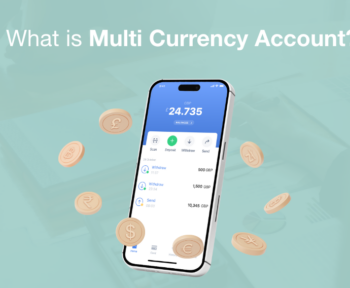Blockchain technology promises permanent, secure, and fast solutions to most of the problems faced by businesses. In traditional business areas, the management of financial processes is inadequate for many innovative solutions and approaches in today’s world.
All the dynamics of traditional financial ecosystems have been completely changing with blockchain solutions in recent years. Businesses are in the process of digitalization for many innovative elements such as financial transactions, data security, and cross-border payments.
Especially when payment systems are managed with traditional banking tools, there may be business problems such as limitations and transaction fees for cross-border payments. However, thanks to blockchain technology, both small businesses and large global enterprises can transfer assets from anywhere and at any time.
Blockchain technology provides both transparent and decentralized data sharing because it is completely algorithmic and digital networks. It includes innovative methods of digital data storage and supply chain management, not just financial assets.
In this way, individuals or businesses can transfer assets or record data reliably and quickly within the decentralized financial ecosystem. It minimizes the number of digital fraud cases while providing a high level of security.
It offers radical solutions not only for financial solutions such as cryptocurrencies but also for every sector where data recording and storage is used, such as healthcare, supply chain, and public services.
Join us in this blog as we explore the role of blockchain technology for businesses, either big or small, sustainability, blockchain payment solutions, and more. Let’s start by understanding its importance in the modern world!
Why Is Blockchain Important in Today’s World?
The main reason why blockchain technology is much more important in today’s world is the issue of data security. Today, data security is an area where giant companies and investors in almost all sectors allocate resources.
Because almost every sector has integrated their traditional infrastructures with digital ecosystems in the digitalization process. In this adaptation process, recording, storing, and safely protecting data have generally become primary responsibilities.
When all these elements are taken into consideration, it becomes clear why blockchain technology is even more important in today’s world.
Thanks to its decentralized structure, it prevents all possible data manipulations. Jeton offers reliable digital payment tools not only for individual investors but also for businesses.
Moreover, it does not only include solutions related to financial assets such as cryptocurrencies. It also offers useful solutions in many different areas, such as health, logistics, energy, and public services, depending on the secure recording of data.
For example, blockchain examples can be used to securely store all transaction histories and patient records of a patient. At the same time, another example is the use of blockchain technologies in the supply chain management process of a logistics company.
What Are the Real-World Problems Solved by Blockchain?
So what are the solutions that blockchain technologies offer to real-world problems? While many common business problems can be managed much more easily thanks to blockchain solutions, sometimes great steps can be taken in individual financial management.
- Asset transfer without the need for an intermediary
- Elimination of fraud possibilities
- Transparent registration system
- Reliability in supply chain management
- Automated transactions thanks to smart contracts
Supply chain tracking can be one of the best real-life problems that blockchain offers a solution to. In addition, cross-border payments can be managed much faster, more securely, and more freely with the financial tools of blockchain technology.
It also offers direct, effective solutions to cybersecurity attacks and other data security problems. For example, if a popular coffee producer manages the supply chain management between its branches and employees with traditional data processing and storage tools, data manipulation is possible.
However, when this process is managed with blockchain tools, data related to the supply chain, such as which producer a product passes through, which intermediaries, and at what time and in what quantity it reaches the branch, can be automatically recorded transparently as digital data.
How Does Blockchain Help Businesses?
Traditional data recording methods and solutions offered by financial institutions for important business problems are no longer as valid as they used to be.
The modern world, where technology is increasingly used in every field, is undergoing a major digital transformation. Our methods of processing and recording data have also changed within this transformation.
Moreover, this wind of change is blowing so much that it dares to change our approach to our financial assets. Thanks to digital asset classes such as cryptocurrencies, all the problems of fiat currencies and traditional banking are eliminated.
For example, businesses could be subject to restrictions in cross-border payment processes. Moreover, they were also paying high transaction fees in such payments, and the level of privacy was unfortunately low.
However, thanks to blockchain payment solutions, all foreign exchange transfers are completed in seconds, transparently and securely. And all these transfers are completed freely within the decentralized finance ecosystem. Thanks to these solutions, it provides great financial efficiency for businesses working in sectors such as e-commerce.

How Can Small Businesses Benefit from Blockchain?
Although blockchain solutions are thought to offer suitable solutions for large-scale and global businesses due to their innovative technology, it should be remembered that there are also many opportunities and solutions for small businesses.
For example, small businesses that try to remain strong and sustainable in the market with a limited budget need a cost advantage more. In the future world where financial processes are managed with cryptocurrencies, it is more possible for businesses to gain a competitive advantage.
This is very good news in terms of the implementation of the principle of financial inclusion. Thanks to blockchain payment systems, small businesses can get rid of bank commissions that can cause problems for their budgets.
For example, an SME pays periodic commissions to banks for payments made via POS devices. However, small businesses that integrate payment infrastructures with blockchain tools get rid of these commissions.
It is possible to see many different examples of these business models in the near future. It can be claimed that other blockchain solutions, such as managing the supply chain more efficiently and increasing customer loyalty, are also useful for all types of businesses. With Jeton, you can manage all your digital payments in seconds.
How Can Blockchain Be Used to Support Sustainable Business?
Nowadays, investors and businesses take into account not only financial profitability but also sustainability and environmental impacts. For this reason, processes that can be managed completely digitally, such as blockchain payment systems, are even more interesting.
For example, a textile brand that produces its products using recycled raw materials in its production process makes a similar contribution to reducing its carbon footprint by managing its supply chain management digitally.
Moreover, when a brand or business integrates with this type of working model, it also increases the loyalty of its customers. If you want to experience the fastest and most reliable payment, you can check out Jeton. Jeton is one app for all needs!
Blockchain Payment Solutions for Businesses
Thanks to blockchain payment solutions, businesses can get rid of the slowness caused by traditional payment systems. Moreover, there are periodic commission payments in the payment infrastructures offered by banks in the traditional finance ecosystem for businesses.
- Low-cost and fast cross-border payments
- Transparency and speed in supply chain management
- • 24/7 payment options for customers
- Automation through smart contracts
- • Cost transparency
In business payments made through digital wallets on blockchain networks, both innovative payment methods are offered to customers and the commission fee cost is minimized in these payments.
In addition, there is always a third-party dependency in payment processes managed through traditional banks. However, for a business operating on a global scale, this third-party dependency harms operational efficiency.
In today’s world, where every stage of the supply chain is managed digitally, blockchain payment solutions offer very good solutions for export companies and businesses making cross-border payments.
In this way, you can keep up with cash flow in highly competitive markets and continue your operation in the form of automation by reducing the risk of human error to 0. With Jeton, you can manage all real-time payment processes by enjoying the easy interface.

What Is Blockchain Payment?
Blockchain payment can be defined as the transfer of assets between the buyer and the customer via a blockchain network between the digital wallets of the two parties. In this process, where there is no third party, a direct transfer is made from user to user.
Just like in business-to-business banking tools, two businesses can transfer assets via blockchain payment. Generally, in the blockchain payment process, all transactions are recorded in digital ledgers, which ensures that all transactions are transparent for businesses and increases traceability.
In this way, unlike traditional payment systems, it is easier to combat possible cybersecurity threats, and operational costs for businesses are greatly reduced. With tens of thousands of users worldwide, you can enjoy the most advantageous digital payment method on Jeton.
How Do Blockchain Payment Systems Work?
The basic working mechanism of blockchain payment systems depends on the transfer of assets between two wallets in a blockchain network. Transactions between crypto wallets usually continue through nodes that verify within the ecosystem.
Each payment order is presented to the network as a block, and other participants in the network approve this transaction. Data protected by high algorithmic encryptions prevents someone else from manipulating this data and is unchangeable.
In this way, every transaction within this network becomes permanent and transparent. New data is recorded continuously based on the principle of verifying transactions.
A process without central authorities, limitations, tax liabilities, and high commission rates is managed for both individual investors and businesses.
In blockchain payment systems, all transactions are recorded in blockchain public ledgers based on the verification of other users.
Moreover, each transaction is recorded by encrypting it through high-level algorithms. Data is stored encrypted in each block, and the blocks are connected to each other.
Although this technology and its solutions are more commonly associated with cryptocurrencies, the solutions it offers also offer life-saving solutions in areas such as supply chain management, inventory management, logistics, and export.
How Is Blockchain Used in Payments?
Blockchain technologies are not limited to the digital asset class cryptocurrencies they offer. They also include useful solutions for all payment processes as a data pool, data recording, and data storage format.
Moreover, it is used not only in finance but also in sectors such as logistics, export, and e-commerce to optimize payment processes.
For example, when sellers on a global e-commerce site offer customers the option to pay with cryptocurrencies, they can reach more customers.
These customers make payments to the seller’s wallet through the digital assets in their wallets. In a globalized world where different countries are in constant commercial contact with each other.
Such financial freedom makes a difference for both customer privacy and operational efficiency of businesses. In the near future, blockchain payment solutions will perhaps be as common a payment method as credit cards on all e-commerce sites.
Thanks to blockchain payment systems, it will no longer matter which country’s banking regulation you are under. The freedom of being in this decentralized finance ecosystem is a profitable scenario for both parties.
How Do You Implement Blockchain to Empower Your Business?
Regardless of your industry, whether you are a small or global business, you can use blockchain payment solutions for your business. First of all, you need to find a reliable and reputable provider.
Then, all you need to do is create a digital wallet opened in the name of your business. Sharing the information of this wallet with your customers will be enough for you to receive payments. All payments can be viewed in your wallet instantly.
Blockchain can be used in many areas that concern your business, such as supply chain management, programs that aim to increase customer loyalty, and offering a rich variety in payment systems.
Today, the giants of every sector are not yet fully integrated with blockchain technologies. However, in the future, many companies will even create customized blockchain networks for themselves.
Considering that data is one of the most important commodities of our age, it will be impossible to think of business management and blockchain solutions separately in the future.
Moreover, you do not need to be a large business that exports globally to benefit from blockchain solutions. Even as a small business, you can evaluate the tools offered by this technology.
Jeton is one of the reliable platform examples that offer you all the solutions for your fast money transfer needs. Empower your business with smarter, safer transactions.
Jeton leverages blockchain technology and advanced security tools like Two-Factor Authentication to help you solve real-world payment challenges with ease.
Open your Jeton account today and discover seamless, secure solutions built for modern businesses. Download the Jeton App from Google Play or the App Store and take full control of your business payments—anytime, anywhere.


